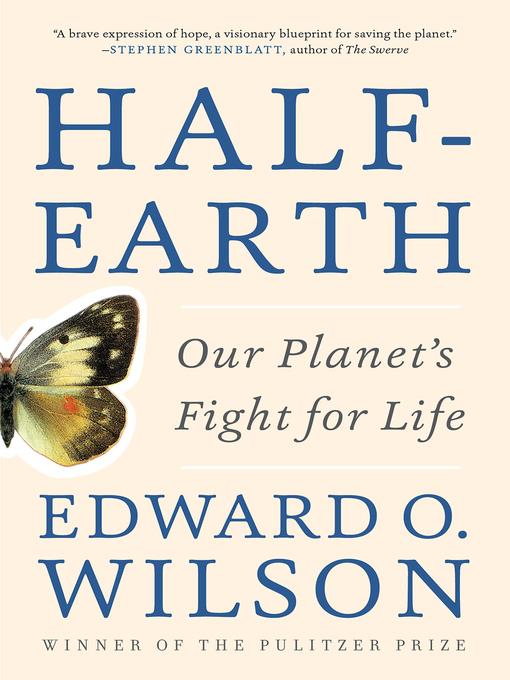
Half-Earth
Our Planet's Fight for Life
کتاب های مرتبط
- اطلاعات
- نقد و بررسی
- دیدگاه کاربران
نقد و بررسی

January 1, 2016
The noted naturalist and Pulitzer Prize-winning author again waxes eloquent on behalf of the biosphere. In this final volume of his trilogy, Wilson (The Meaning of Human Existence, 2014, etc.) opens with a compelling proposal on how to slow current species extinction rates: set aside half of the planet (noncontiguously) as wilderness preserves free from human encroachment, a measure that the author claims would stabilize more than 80 percent of species. After all, it's the spread of humanity that has accelerated rates of extinction by 1,000 times, and it is human activity that is the driving force of the mass extinction currently underway, a threat to biodiversity equal to the destructive power of the Chicxulub asteroid strike that wiped out 70 percent of species 65 million years ago. Wilson, the world's leading myrmecologist, who has described roughly 450 new ant species during his career, predicts that, under current conditions, one-quarter to one-half of currently surviving species will survive to the end of the century. If the rhetoric sounds familiar, it's because this is ground that Wilson has covered extensively in previous publications. In this latest version, the author speaks against a growing movement of Anthropocene extremists who hold that biodiversity should be judged according to its usefulness to humanity. Countering that it is humanity that now needs to act in the interests of the biosphere, Wilson delves into the plights of specific species, including rhinos, frogs, monarch butterflies, woodpeckers, and beetles. Though unquestionably well-versed in the nature of the problem, the author is fuzzy on the solution. In the final pages, he skirts the issue of how we're to set aside 50 percent of the planet, instead making speculations about technological innovation and intensive economic growth intrinsically altering the behavior of individuals and changing the world. Not so much a potent plan as another informed plea for humanity to act as stewards of the biosphere rather than owners.
COPYRIGHT(2016) Kirkus Reviews, ALL RIGHTS RESERVED.

Starred review from February 15, 2016
For decades, scientist, educator, and environmentalist Wilson (A Window on Eternity, 2014) has cogently and ardently sought to awaken us to the grand intricacy of life on Earth and the increasingly urgent need to protect the wondrous biosphere that sustains us. Fascinated by small living marvelsants have been his abiding focus, and here he zestfully illuminates the invisible microbial world teeming everywhere from the bottom of the sea to within our own bodiesWilson is also profoundly conversant in the dynamics of the big picture. This makes for an invigorating elucidation of why the full range of interdependent life forms is necessary for a living Earth, and how habitat destruction, pollution, poaching, overhunting, and overfishing are destroying myriad species. As Wilson castigates those who deny environmental realities or embrace the fantasy of a futuristic human-engineered life-system, he stresses the importance of supporting the painstaking work of scientific naturalists. But that takes time, and we are facing impending water shortages, mass extinction, and climate change. So Wilson, drawing on his extensive conservation experiences as well as his biological insights, suggests a radical approach to protecting the planet's endangered biodiversity. He calls for us to commit half the planet's surface to nature. This startling, courageous, many will say wildly quixotic vision of a truly global preservation effort is guaranteed to stoke the fires of environmental debate.(Reprinted with permission of Booklist, copyright 2016, American Library Association.)

October 1, 2015
Are we inevitably heading toward extinction? No, says Harvard emeritus biologist/naturalist Wilson, so huge in his field that PBS will air a miniseries about him this fall. But we can't just engineer our own safe place on Earth. Wilson passionately argues that we can counter mass extinction by letting biodiversity thrive as we expand the natural reserves where humans cannot intervene until they take up half the globe.
Copyright 2015 Library Journal, LLC Used with permission.

























دیدگاه کاربران